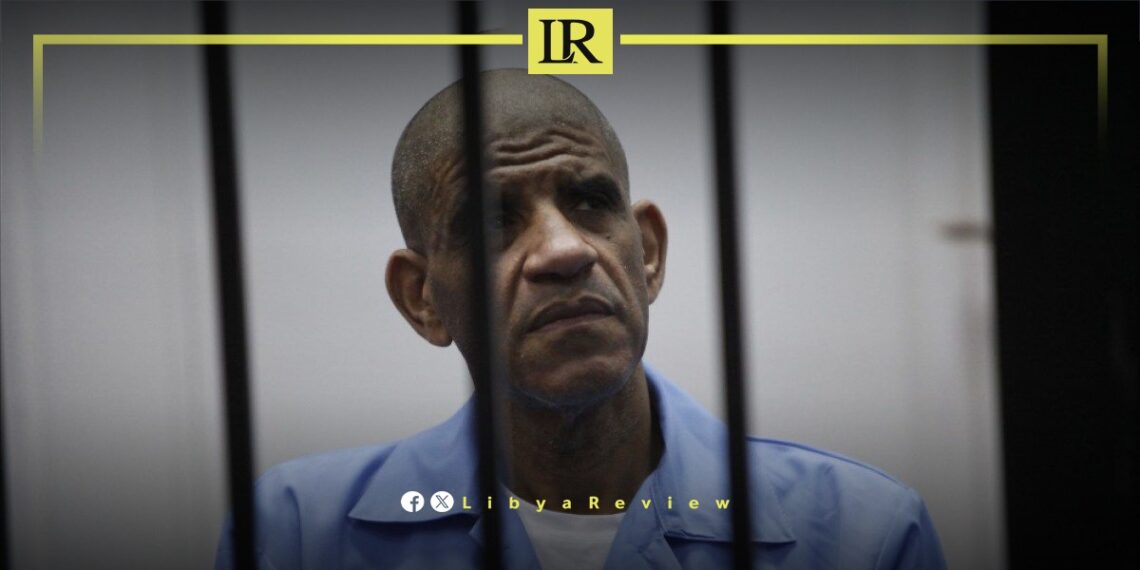The lawyer of the former intelligence chief of Muammer Gaddafi’s regime, Major General Abdullah al-Senussi, announced the postponement of his client’s trial session at the Tripoli Appeals Court until the end of May.
Ahmed Nashad stated in a press release onTuesday, that the court postponed the session due to its inability to communicate with one of the defendants in the case, who is currently outside Libya after being released for health reasons.
He added that his client did not attend the session because he was not involved, having already presented his statements and defense to the court previously.
Earlier, the Attorney General, Al-Siddiq al-Sour, clarified that he had no information indicating al-Senussi’s poor health conditions. He mentioned receiving complaints from Senussi’s relatives due to the trial’s postponement and its prolonged duration.
The Attorney General pledged to investigate and address the matter promptly to ensure a fair, transparent, and swift trial for Senussi according to justice standards.
In July 2022, Human Rights and Rule of Law team of the United Nations Support Mission in Libya (UNSMIL) met with the Abu Salim victims’ association to discuss victim-centered transitional justice measures.
The victim’s families called for accountability for the 1996 mass killing of more than 1,200 detainees in Libya’s Abu Salim prison.
Abdullah Al-Senussi is one of the main accused of the Abu Salim prison massacre.
The UN team said ensuring accountability for this crime against humanity is critical for rights-based national reconciliation. “It also sends a clear message to human rights violators in the fight against impunity in Libya,” it added.
Al-Senussi was extradited in September 2012 by Mauritania, where he had fled after Gaddafi’s fall. Similarly to Gaddafi’s son Saif Al-Islam, he had also been the subject of an International Criminal Court (ICC) arrest warrant for suspected war crimes during the 2011 uprising.
Abdullah Al-Senussi, a brother-in-law of longtime leader Muammar Gaddafi, was sentenced to death in 2015 over the part he allegedly played in the regime’s response to a NATO-backed uprising in 2011.


